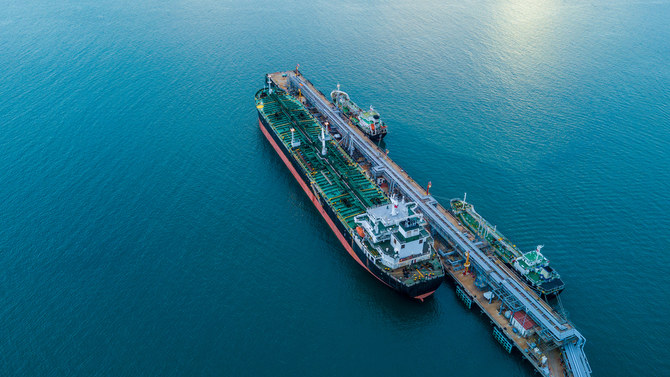RIYADH: Oil prices inched lower in early trade on Wednesday as US consumer prices unexpectedly rose in August, giving cover for the US Federal Reserve to deliver another hefty interest rate increase next week.
Brent crude futures were down 0.53 percent at $93.20 a barrel at 07.30 a.m Saudi time.
US West Texas Intermediate crude is priced at $86.90 a barrel, down 0.47 percent.
OPEC sticks to oil demand growth view, sees pre-pandemic demand in 2023
The Organization of Petroleum Exporting Countries, known as OPEC, on Tuesday stuck to its forecasts for robust global oil demand growth in 2022 and 2023 citing signs that major economies were faring better than expected despite headwinds such as surging inflation.
Oil demand will increase by 3.1 million barrels per day in 2022 and by 2.7 million bpd in 2023, unchanged from last month, the OPEC said in a monthly report.
Oil use has rebounded from the lows of the pandemic, although high prices and Chinese coronavirus outbreaks have trimmed 2022 projections. The downgrades, in OPEC’s view, have delayed recovery in oil use to above 2019 levels until 2023, it said last month.
“Oil demand in 2023 is expected to be supported by a still-solid economic performance in major consuming countries, as well as potential improvements in COVID-19 restrictions and reduced geopolitical uncertainties,” OPEC said in Tuesday’s report.
It expects world oil consumption in 2023 to average 102.73 million bpd, above the pre-pandemic rate during 2019.
Earlier this year, OPEC had forecast a move above pre-pandemic demand levels in 2022.
“While the US and China especially were facing challenges in the first half of 2022, their economies are very likely to recover in the second half,” the report said.
The report added: “The eurozone enjoyed an unexpectedly strong first half of 2022 despite weak sentiment and inflationary trends.”
Iran controls fire at southern oilfield
Iran on Tuesday brought under control a fire at its Shadegan oilfield which was caused by an apparent act of sabotage, a local oil company official told state television.
The fire was caused early on Tuesday after “tampering by unknown elements,” but it was quickly brought under control, Qobad Nasseri, head of the Maroon Oil and Gas Production Company which exploits Shadegan, told state television.
The oilfield is located in the oil-rich southwestern Khuzestan province, home to Iran’s Arab minority, which has long been the scene of anti-government unrest.
Iran has accused Israel of several attacks on facilities and scientists linked to its nuclear program. Israel has neither denied nor confirmed the allegations.
Nasseri said: “The situation is completely under control and there is no cause for concern... The damage is being evaluated but the field will return to production shortly.”
The fire apparently occurred at one of some 20 active wells in the Shadegan field, which has an estimated total production capacity of about 70,000 barrels per day.
(With input from Reuters)


























